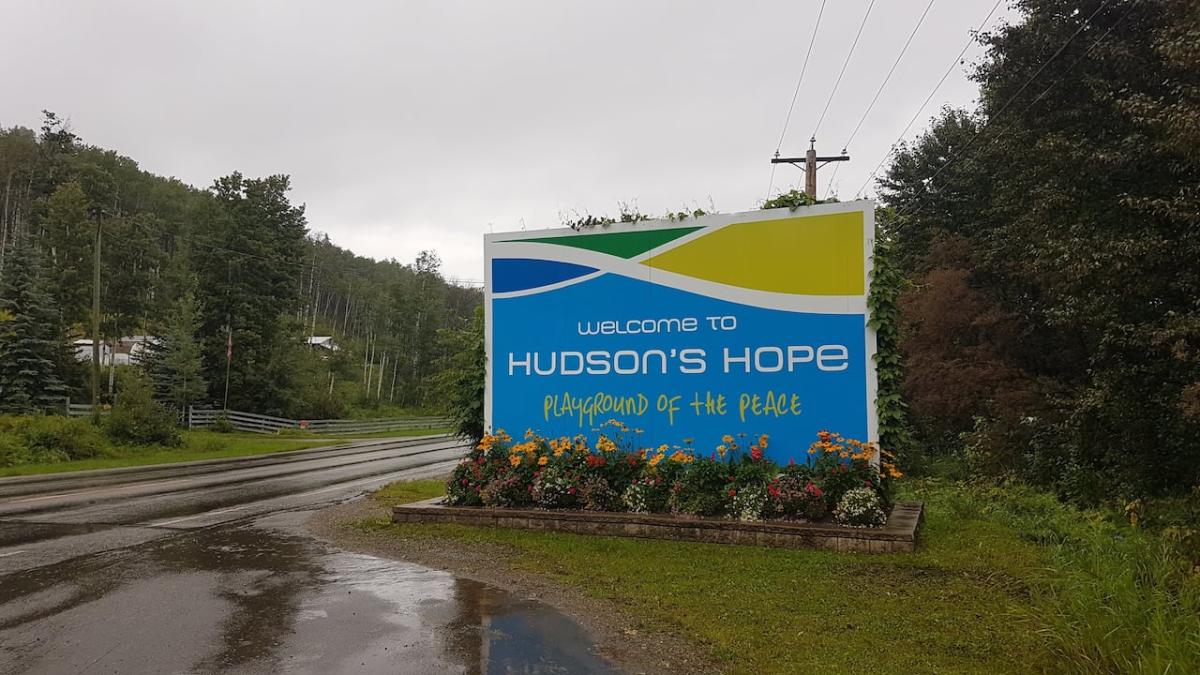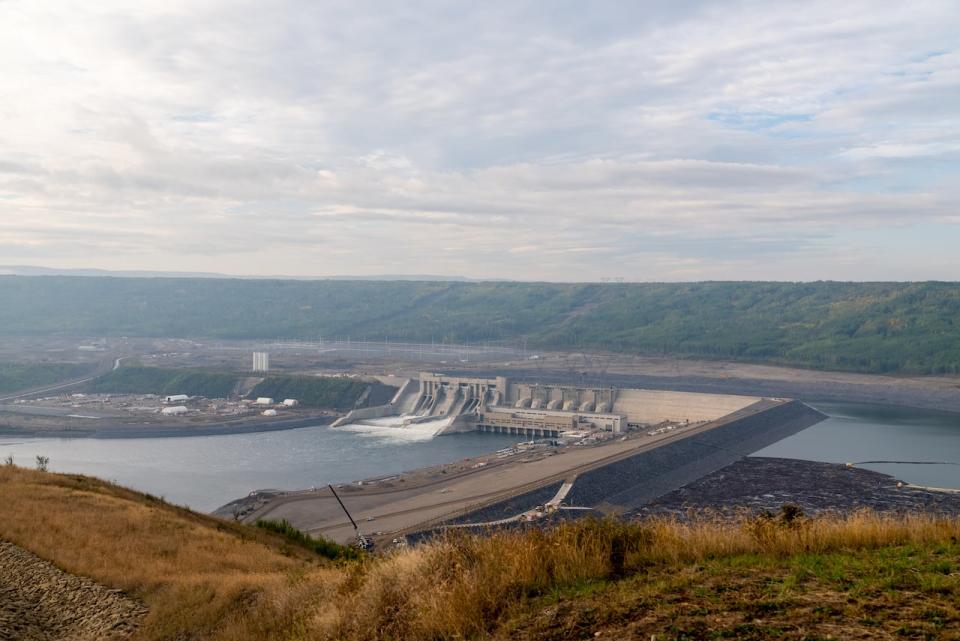


Residents of a town affected by the construction of the Site C dam are set to vote on whether their district should borrow nearly $5 million to pay for a new water treatment plant.
Hudson’s Hope, B.C., with a population of about 850, is located on the banks of the Peace River, about 85 kilometres upriver from the new dam.
In recent years, with the construction of Site C, residents have faced issues and uncertainty with tap water quality related to dam construction, including a two-month-long “do not consume” order in 2022.
“There’s frustration. There’s fear,” said Hudson’s Hope district councillor Tashana Winnicky, describing how residents are feeling ahead of the vote.
The district has held several public meetings to discuss options and share information with residents. One meeting lasted seven hours, during which officials considered how many things in the town’s budget would need to be cut to free up enough money, Winnicky said. Ultimately, they decided they’d need to borrow the money instead.
Problems began with Site C
Prior to the dam’s construction, the town drew clean water from the Peace River, but construction of Site C was set to disturb the water and the town had to adapt. It built two wells and a well-water treatment plant with funding from B.C. Hydro. But after high levels of contaminants were found in the well water, the town went back to river water.
But that required a new filtration system to address the lowered quality of the river water. While waiting to build a permanent system, Hudson’s Hope has been paying $32,000 a month for a temporary water treatment plant in a full-sized truck trailer.
Due to the high cost, local officials say the need for a permanent plant is pressing. On Oct. 5, residents will vote on a bylaw that would allow the district to borrow $4,756,000 with interest. Advance voting starts on Sept. 25.
“People care so much about this community and about what the future looks like, about how borrowing the money impacts the future and the ability of the district to provide services, but also just the longevity and the ability to have fresh, clean drinking water,” Winnicky said.
Wally Harwood, a Hudson’s Hope resident whose property overlooks the Peace River, said he wants B.C. Hydro to pay for the new plant.
“It’s natural— why would we want to spend $5 million to get back where we were [with clean water] … before hydro came along and damaged it?” he said.

Construction of the Site C dam is estimated to cost $16 billion. The nearby town of Hudson’s Hope, where water quality has been negatively affected by the dam, says it needs about $5 million from B.C. Hydro to cover the cost of a new water treatment plant. (Andrew Lee / CBC)
Harwood, a former B.C. Hydro employee who supports the construction of the dam, said the $5 million bill for a new plant in Hudson’s Hope is small change compared to other costs associated with the dam’s construction — which totalled $16 billion.
Although he acknowledges that “Hydro did pay the town” for a new well system, he still thinks the company should pay until a clean drinking water system is restored.
“They are still the ultimate cause of the problem,” he said.
Offer comes with conditions
For now, there’s no final decision on whether B.C. Hydro will pay for the new system.
Greg Alexis, a B.C. Hydro spokesperson for Site C, said he wouldn’t speak publicly about the ongoing negotiations with the district but said “a significant offer has been made.”
A B.C. Hydro letter leaked to a local news outlet and published online, indicates significant conditions related to what appears to be an offer of $2.27 million in cash in addition to transferring ownership of some infrastructure. Namely, that the town would be required to release B.C. Hydro from any future financial responsibility.
Asked about the letter and news story, Alexis said he had seen the letters in the media and “we think that article … fairly represents the position we have here.”
Alexis also said the company has already provided the town with “close to about $6 million in costs” related to water treatment. He said this includes about $5 million to fund the well, in addition to emergency response funds when the well system failed and funds to help the town return to a surface river water system.
Winnicky said she’s not sure whether the bylaw will pass the town vote but said the district won’t be able to continue operating the temporary station.
“If we continue to operate that, eventually, we would just go bankrupt,” she said.
And without a new plant, the town could expect boil water advisories for years to come. She said this impacts the local arena, pool, schools, and health-care facilities.
“It really puts this town in a lot of uncertainty,” she said.
Alexis said that if negotiations fail, it’s possible the dispute could go to court. However, he said the company hopes it doesn’t come to that.